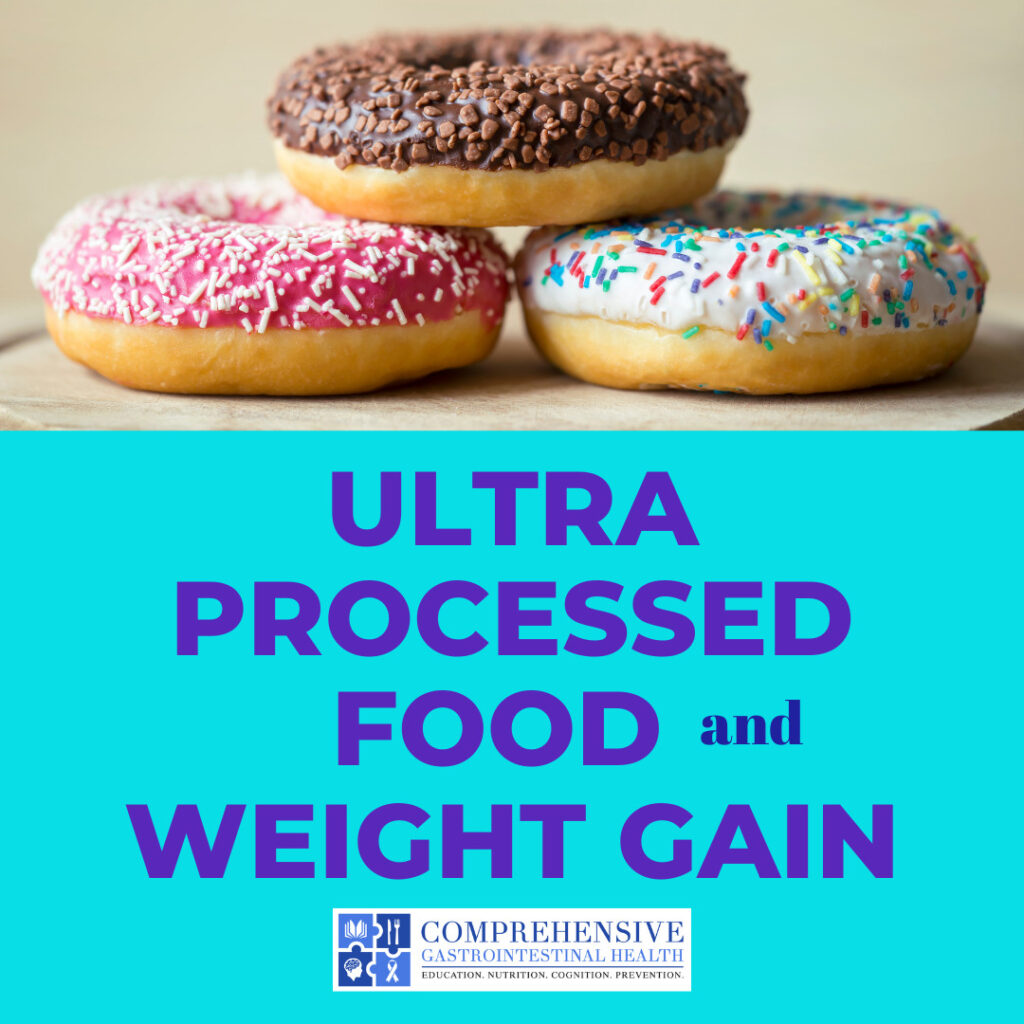Ultra-Processed Food and Weight Gain

August 4, 2022CLAIRE ALLEN, MS, RDN, LDN
Ultra-processed foods are defined according to the extent and purpose of industrial processing required to make the food. This processing includes chemical modification to foods, use of cosmetic additives and fractioning of whole foods to be combined with other ingredients. The ingredients list often looks like a science experiment and includes substances such as emulsifiers (i.e., maltodextrin), sweeteners (i.e. high fructose corn syrup) and modified oils (i.e., hydrogenated palm oil). Examples include fruit drinks, ice cream, crackers and energy bars.
Research has identified that these ultra-processed foods may contribute to weight gain. There are several reasons that contribute to this. First, ultra-processed foods are often calorically dense, meaning that even in a small portion their caloric content is higher than whole foods such as fruits and nuts. Secondly, these foods tend to have a higher glycemic load, causing a rapid rise in blood sugar after eating, resulting in an insulin response that may promote weight gain. Finally, these foods are designed to be hyper-palatable. Ultra-processed foods often contain high levels of salt, sugar and artificial flavors, which tricks our brains to continue to want more, even if we aren’t necessarily hungry.
One of the main concerns we hear from patients is, “how can I eat healthy on the go.” Our team of registered dietitians are well versed in helping patients develop quick, healthy meals and snacks that don’t rely on ultra-processed foods. If this is of interest to you, schedule an initial consult today at 224-407-4400 or visit our website at www.compgihealth.com
